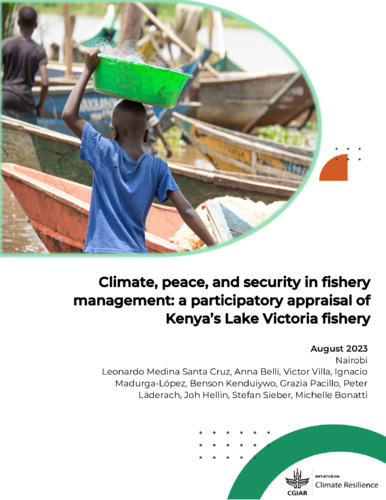Climate, peace, and security in fishery management: A participatory appraisal of Kenya’s Lake Victoria fishery.
Abstract
The link between climate change and conflict has been widely studied in the past decade. Despite empirical evidence leading to ambiguous, sometimes contradictory, conclusions, it is generally accepted that climate-related security risks are manifested through a non-linear and complex interplay between climate threats, sources of vulnerability, and drivers of conflict. The effects of this “vicious circle” are underlined by socioeconomic and political factors acting as drivers of insecurity. Settings affected by fragility, high degrees of vulnerability, weak institutions, social fragmentation and reduced coping capacity are most at risk of environmental scarcity, climate variability or extremes compounding with risks of conflict. At the same time, collaborative responses to stress and crisis are well documented, and the potential of local climate adaptation efforts towards fostering social cohesion widely recognized. The literature on climate security in Kenya emphasizes the role of food systems and small-scale agriculture in increasing population vulnerability or enhancing resilience to climate-related security risks. However, the field has for the most part focused on farming and livestock systems. In contributing to this growing body of literature, this article aims to contribute to a better understanding of the interlinkages between climate change, human insecurity and conflict with a focus on fishery-dependent communities. Building upon qualitative participatory appraisal methods, this research aims to develop an understanding of climate-related security risks that better relates to people´s everyday experience of the compounding risks brought about by climate variability and human insecurity in a fishery context. It also intends to advice programmatic practices on conflict-sensitive climate action. Data was gathered through focus group discussions with fisher community members from the Banyala Indigenous peoples in Busia County. This article categorizes climate-related security risks as experienced in everyday lives and presents community-led policy recommendations for conflict-sensitive climate adaptation in the Lake Victoria fishery.

